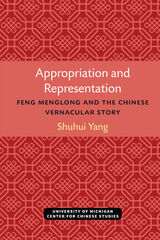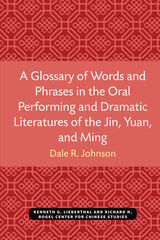

The huaben, or vernacular story, was one of the richest, most varied, and appealing genres in all Chinese literature, often reaching a larger audience than works in Classical Chinese. And yet, because of its very popularity, the huaben was almost entirely disregarded by official, learned society. Now, Patrick Hanan brings this intriguing half-buried literature to light, tracing its development from the thirteenth through the seventeenth century—when it became, indeed, the most vital form of Chinese fiction.
Hanan begins by explaining the position of vernacular language within Chinese language and literature as a whole. He then goes on to show how the huaben acquired a tremendous range of subjects and interests from the most serious moral and philosophical problems to crime stories, romances, and ribald satires. Hanan consistently relates the stories and their authors to China’s changing social and political life. At the same time, he carefully evaluates the best of the stories, giving fresh and detailed information about their composition, performance, and reception.


It is generally believed that Mao Zedong's populism was an abrupt departure from traditional Chinese thought. This study demonstrates that many of its key concepts had been developed several decades earlier by young May Fourth intellectuals, including Liu Fu, Zhou Zuoren, and Gu Jiegang. The Chinese folk-literature movement, begun at National Beijing University in 1918, changed the attitudes of Chinese intellectuals toward literature and toward the common people.
Turning their backs on “high culture” and Confucianism, young folklorists began “going to the people,” particularly peasants, to gather the songs, legends, children's stories, and proverbs that Chang-tai Hung here describes and analyzes. Their focus on rural culture, rural people, and rural problems was later to be expanded by the Chinese Communist revolutionaries.

Shifting Stories explores the tale literature of eighth- and ninth-century China to show how the written tales we have today grew out of a fluid culture of hearsay that circulated within elite society. Sarah M. Allen focuses on two main types of tales, those based in gossip about recognizable public figures and those developed out of lore concerning the occult. She demonstrates how writers borrowed and adapted stories and plots already in circulation and how they transformed them—in some instances into unique and artfully wrought tales.
For most readers of that era, tales remained open texts, subject to revision by many hands over the course of transmission, unconstrained by considerations of textual integrity or authorship. Only in the mid- to late-ninth century did some readers and editors come to see the particular wording and authorship of a tale as important, a shift that ultimately led to the formation of the Tang tale canon as it is envisioned today.
READERS
Browse our collection.
PUBLISHERS
See BiblioVault's publisher services.
STUDENT SERVICES
Files for college accessibility offices.
UChicago Accessibility Resources
home | accessibility | search | about | contact us
BiblioVault ® 2001 - 2024
The University of Chicago Press









